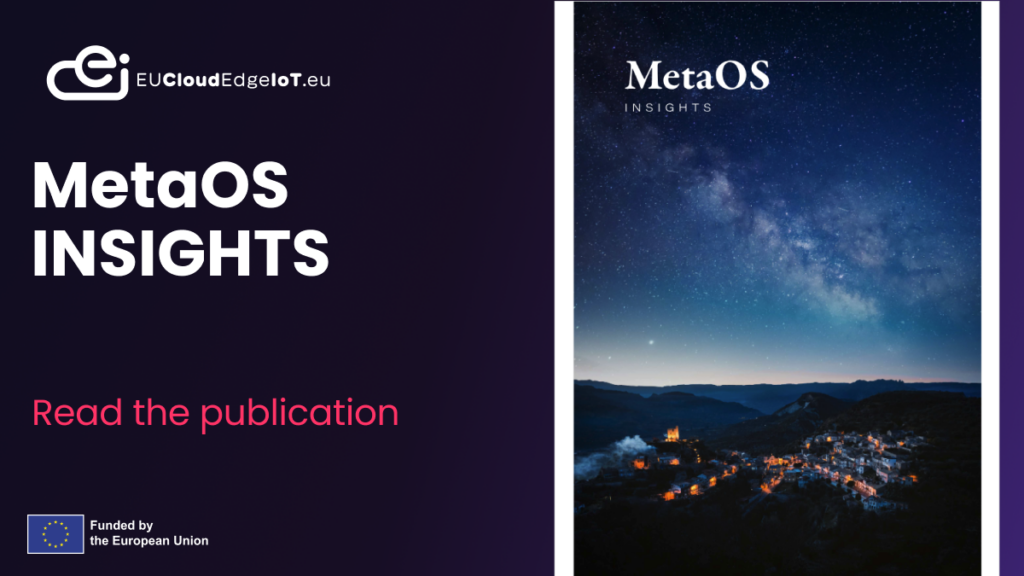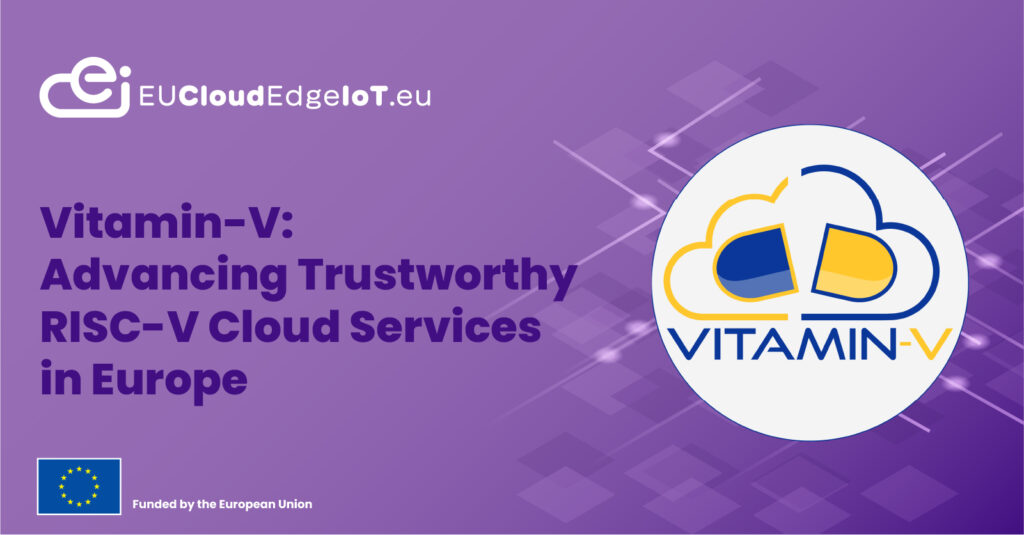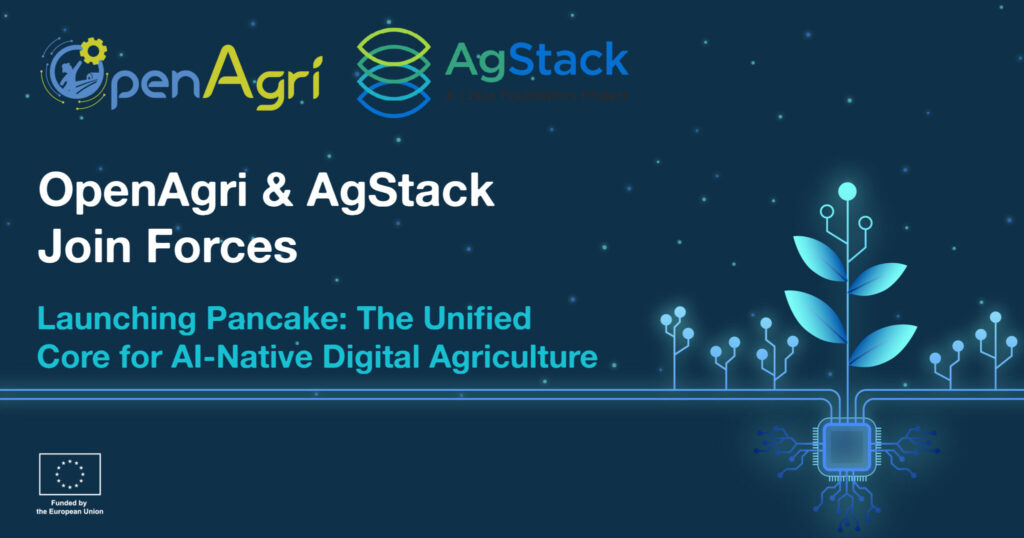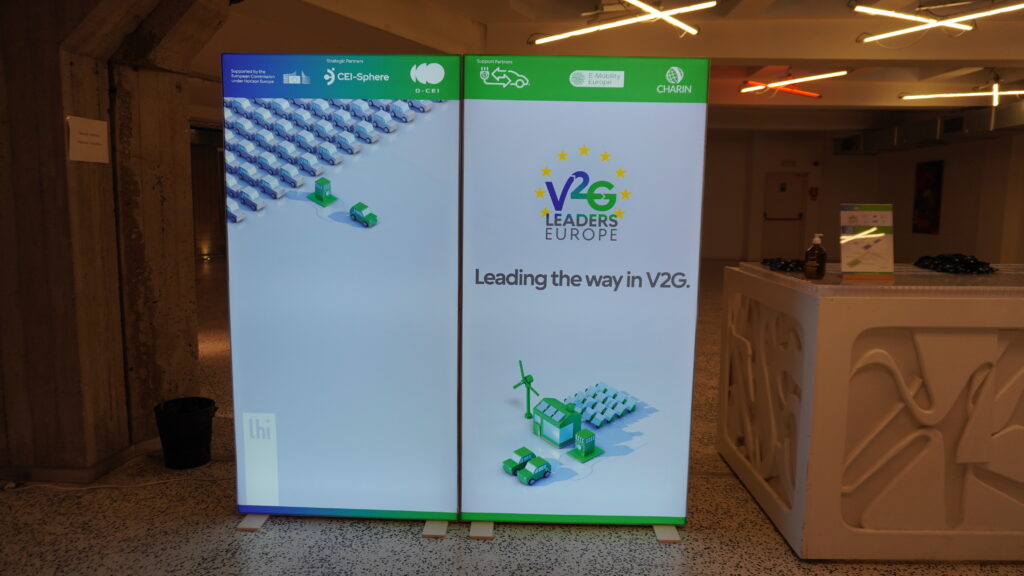Authors:
Dr. Amjad Majids
Introduction
The European Cloud, Edge, and IoT (EUCloudEdgeIoT, EUCEI) initiative is crucial for promoting digital autonomy in Europe. Supported by the OpenContinuum and Unlock CEI projects, EUCEI aims to advance cloud, edge, and IoT technologies, creating a robust computing ecosystem. This white paper provides an in-depth analysis of the insights and outcomes from the EUCEI’s OpenContinuum Final Conference, highlighting the transformative impact of these technologies on various industrial sectors.
Albert Seubers (Coordinator at EUCEI’s OpenContinuum) opened the conference, emphasising the participation of 30 projects focused on swarm computing, cognitive cloud, cognitive computing, next-generation IoT, metaOS, and Open Source. These projects are critical in building a digitally autonomous Europe, showcasing the collaborative spirit driving these initiatives.
Luis Busquets Pérez (Programme Officer, European Commission) highlighted the European Commission’s commitment to ICT, emphasising the value of elastic and scalable edge computing. He outlined the EC’s investment strategy across networking, digital services, and Horizon Europe, aiming to ensure Europe’s digital sovereignty by promoting innovation and integration across the computing continuum. In his presentation he highlighted the Digital Decade objectives by 2030 and the 4 pillars of the European Data Strategy.
In the following sections, we will summarise the main objectives, achievements, and insights from the EUCEI initiative, highlighting how it has driven digital innovation and integration across Europe.
Objectives and Achievements
The EUCloudEdgeIoT (EUCEI) initiative has been instrumental in advancing a resilient and interoperable computing ecosystem within Europe. Through its multifaceted objectives, the initiative aims to promote an open ecosystem, map the supply-side landscape, and engage the demand side in early development stages to bridge the gap between supply and demand. These efforts have significantly driven digital innovation and integration across Europe, helping to position the region as a leader in the global computing continuum landscape.
Promoting an Open Ecosystem
A primary objective of EUCEI is to establish a European industrial ecosystem grounded in open source and open standards. This approach ensures interoperability, scalability, and security across the computing continuum. Collaborating with key initiatives such as the Alliance for Internet of Things Innovation (AIOTI), the European Cyber Security Organisation (ECS), and Gaia-X, EUCEI has created a collaborative environment that enhances the overall impact of the initiative.
- Interoperability and Standards: By promoting open standards, EUCEI ensures that different systems and technologies can work together seamlessly. This is crucial for creating a unified computing continuum where resources and data can be shared and utilised effectively.
- Scalability and Security: The emphasis on open source not only fosters innovation but also ensures that solutions are scalable and secure. This is particularly important in the context of the computing continuum, where the need for robust, scalable, and secure solutions is paramount.
- Collaborative Projects: Initiatives like AIOTI, ECS, and Gaia-X provide platforms for collaboration and standardisation. These collaborations have led to the development of common frameworks and guidelines, which are essential for the cohesive growth of the computing ecosystem.
Mapping the Supply-Side Landscape
A comprehensive analysis of the European computing continuum landscape has revealed several key insights, which are crucial for understanding the roles and contributions of various actors in this ecosystem. This mapping exercise has facilitated the creation of a robust supply-side community that engages both industrial and research actors cohesively.
- Identifying Key Players: The landscape includes major corporations, SMEs, research institutions, and public sector bodies. Each of these actors plays a vital role, from developing new technologies to implementing standards and driving market adoption.
- Trends and Innovations: The analysis highlighted trends such as the increasing focus on interoperability, the adoption of open-source solutions, and the emphasis on scalability and efficiency. These trends are shaping the future of the computing continuum in Europe.
- Community Building: By identifying and engaging key players, EUCEI has created a cohesive community that works towards common goals. This community is essential for driving innovation and ensuring the successful implementation of new technologies.
- Standardisation: The launch of a standard in ISO/IEC JTC 1/SC 41 (Architecture considerations on IoT, edge, and cloud) as a result of joint OpenContinuum-AIOTI collaboration can pave the way for a serie of standards on the continuum.
Engaging the Demand-Side
Engaging the demand side is essential for understanding market dynamics and exploring business opportunities. EUCEI has conducted systematic assessments to gain insights into the current state of the European CEI demand landscape.
- Market Insights: Through these assessments, EUCEI has developed a deep understanding of market needs and dynamics. This includes identifying key sectors and applications where CEI technologies can have the most significant impact.
- CEI Readiness Framework: The insights gained from the demand-side assessments have informed the development of a CEI Readiness Framework. This framework prepares the market for the adoption of CEI technologies by identifying potential barriers and facilitators.
- Business Opportunities: Engaging the demand side has also highlighted new business opportunities, helping to align technological developments with market needs. This alignment is crucial for driving the adoption and commercialization of CEI technologies.
Bridging Supply and Demand
Creating a productive interface between supply and demand is crucial for the successful adoption of new technologies. EUCEI has made significant strides in this area by building the CEI Industry Constituency, which aggregates demand needs and identifies key demand-pull drivers.
- CEI Industry Constituency: This constituency brings together various stakeholders, including industry leaders, policymakers, and researchers, to discuss and align on the needs and priorities of the CEI market.
- Demand-Pull Drivers: By identifying key demand-pull drivers, EUCEI has been able to focus on the most critical areas where CEI technologies can meet market needs. This has helped in prioritising research and development efforts and ensuring that they are aligned with market demands.
- Effective Communication Channels: Establishing effective communication channels between the supply and demand sides has been a key achievement. These channels facilitate the exchange of information and feedback, helping to refine and improve CEI technologies to better meet market needs.
Research Panels and Strategic Insights
The EUCEI’s Open Continuum Final Conference featured research panels on critical areas of cloud, edge, and IoT technologies. Experts from various projects discussed advancements, challenges, and future directions in cognitive cloud, next-generation IoT, meta-operating systems, and open-source standards. These panels highlighted the transformative potential of these technologies in driving digital innovation across Europe. The following sections summarise the key discussions and takeaways, providing an overview of the current state and future prospects of the computing continuum landscape.
Cognitive Cloud
The Cognitive Cloud panel, moderated by Giovanni Rimassa, highlighted the transformative potential of cognitive cloud technologies on European industries, focusing on interoperability, AI-enhanced performance, and smart city applications. Experts from projects such as COGNIFOG, AC3, ACES, Sovereign Edge, and MLSysOps shared insights on leveraging AI and ML to manage complex systems and improve efficiency. Key projects emphasised the importance of achieving interoperability at both architecture and application levels, using AI for lifecycle management, and deploying AI/ML in dynamic node monitoring and energy grid management. The discussion also covered practical applications, like MLSysOps’ use of ML in smart agriculture and Sovereign Edge’s dynamic node deployments in urban settings.
The panellists identified several challenges and future directions, including the need for standardisation, enhanced energy efficiency, and advanced cybersecurity measures. They emphasised the importance of developing standardised approaches to ensure seamless integration across diverse platforms and technologies. Addressing data collection challenges and integrating AI models for better system performance were also highlighted as crucial areas for ongoing research. The Cognitive Cloud panel provided valuable insights into driving innovation and efficiency across various sectors, underscoring the critical role of cognitive cloud technologies in shaping the future of European industries.
Next-Generation IoT & Swarm
The Next Generation IoT & Swarm panel, moderated by Albert Seubers, delved into advancements in IoT architectures and swarm intelligence, featuring insights from leaders of projects like OASEES, TERMINET, OpenSwarm, Assist-IoT, INCODE, VEDLIoT, and TardIS. Panellists discussed the development of decentralised systems, emphasising the importance of data-driven, energy-aware AI and smart programs. They highlighted innovative use cases across sectors such as smart agriculture, medical applications, supply chain, and energy management. Security was a significant focus, with discussions on enhancing security through modular architectures, trusted execution environments, and virtualization techniques to address the dynamic nature of IoT environments.
The panel also explored the challenges of developing autonomous systems and their potential applications in various industries. Security measures, including sandboxing and the zero-trust model, were discussed as critical for ensuring robust IoT deployments. The dynamic and evolving nature of application requirements was acknowledged, with emphasis on the need for continuous updates and adaptability. The conversation underscored the necessity of collaboration between different IoT projects to achieve interoperability and scalability, thereby driving the next generation of IoT and swarm technologies forward in Europe.
MetaOS
The MetaOS panel, moderated by Golboo Pourabdollahian, brought together experts from projects such as aerOS, Nephele, NebulOUS, FluidOS, ICOS, and NEMO. The discussion focused on the development of meta operating systems designed to interconnect various modules and applications across the computing continuum. Panellists highlighted the significant challenges in achieving interoperability and emphasised the need for a unified definition of the computing continuum. They discussed strategies for integrating diverse technologies and ensuring that different systems can work together seamlessly, thereby facilitating widespread adoption of these advanced technologies.
A key topic of the panel was the importance of creating a transparent and standardised approach to managing the computing continuum. Projects like FluidOS and aerOS shared their efforts in developing reference architectures and protocols to enhance interoperability. The panellists also addressed the issue of exploiting project results post-completion, suggesting the development of specific software stacks for commercial applications. The discussion underscored the importance of aligning with common standards and leveraging widely adopted technologies to ensure the success and scalability of meta operating systems in the European digital landscape.
Open Source & Standards
The Open Source & Standards panel, led by Antonio Kung, started with the announcement of the successful organisation of a workshop during the ISO/IEC JTC 1/SC 41 (IoT and digital twins) plenary in Helsinki and the approval for a standard project on the continuum.
The panel featured insights from representatives of Vitamin-V, Riser, FluidOS, aerOS, and FOCETA. The discussion centred on the pivotal role of open source and standards in fostering innovation within the computing continuum. Panellists emphasised that open source projects, aligned with international standards, are crucial for ensuring interoperability, scalability, and security across diverse systems. They highlighted the contributions of their respective projects to the open source community, including software for RISC-V architecture, transparent cloud services, and Kubernetes-based solutions.
The panel also addressed the challenges of maintaining and integrating open source projects into standardised frameworks. They discussed the importance of planning, investment, and continuous maintenance in successful open source endeavours. The panellists shared their experiences with standardisation efforts, noting that standards not only create a robust development environment but also facilitate widespread adoption and trust in the technologies. The discussion underscored the need for a continuum of standards, from high-level protocols to detailed implementation guidelines, to support the seamless operation of the computing continuum.
Cognitive Computing
The Cognitive Computing panel, moderated by Monique Calisti, brought together experts from EMPYREAN, INTEND, and ENACT to discuss the integration and application of AI within the computing continuum. The panel explored how various AI technologies, including machine learning (ML), federated learning (FL), and swarm computing, are being utilised to optimise and manage complex systems. Panellists highlighted the use of AI for smart city applications, decentralised computing, and enhancing human-machine interactions. They emphasised the importance of AI in building trust, ensuring data integrity, and optimising deployments within the continuum.
Discussions also covered the role of AI in creating a fluid and dynamic continuum, where the level of knowledge and capability can vary from local to near-global scales. The panellists noted that the computing continuum must support a decentralised intelligence model, where no single agent has complete knowledge of the entire system. This approach is essential for managing the complexity and scale of modern computing environments. The conversation underscored the need for robust AI models to navigate the challenges of interoperability and seamless integration across diverse technologies and applications within the computing continuum.
Industry Panel discussion
The industry panel explored the current state and challenges of the computing continuum across various sectors, including energy, automotive, healthcare, manufacturing, and telecommunications. Panellists emphasised the need for rapid adaptation to evolving technologies, particularly in AI and machine learning, while addressing the sustainability challenges posed by increased energy consumption. The slow deployment of 5G in Europe, due to financial and regulatory hurdles, was identified as a significant barrier to achieving full connectivity. The discussion also highlighted the importance of virtualization for flexibility and cost efficiency, especially in telecommunications, and the critical role of the continuum in supporting modern automotive applications.
In the energy sector, the panel emphasised the transformative potential of digital solutions and decentralisation, calling for a European management platform to optimise energy production and distribution. Cybersecurity emerged as a crucial concern, with the increasing complexity of edge computing and automotive systems requiring robust security measures to protect the integrity of the continuum. The discussion concluded with a focus on Europe’s need for strategic autonomy in critical technologies, acknowledging current dependencies but expressing optimism that initiatives like the European Chips Act could bolster resilience and independence in the computing continuum.
Handover & Awards
The handover from Open Continuum to Nexus Forum marked a significant transition for the EUCEI initiative. Speakers including Sachiko Muto, Thomas Ohlson Timoudas, Chiara Zincone, and Giovanni Rimassa discussed the future direction of the initiative. The Nexus Forum aims to build on the achievements of Open Continuum, continuing to foster collaboration and innovation within the computing continuum. The focus will be on engaging a broader range of stakeholders, including investors and member state representatives, to drive forward the goals of digital sovereignty and innovation in Europe.
The conference featured an exhibition area where projects showcased their achievements through roll-up banners and networking opportunities. This provided a platform for peer engagement and collaboration. The awards ceremony celebrated outstanding projects within the EUCEI community, recognizing their contributions to advancing cloud, edge, and IoT technologies.
Conclusion
The EUCEI’s Open Continuum initiative has significantly advanced the integration and innovation within the cloud-edge-IoT landscape. By promoting open standards, fostering collaboration, and driving strategic investments, the initiative has laid a strong foundation for Europe’s digital sovereignty. The insights and outcomes from the conference highlight the transformative potential of these technologies and provide a roadmap for future research and development efforts.




